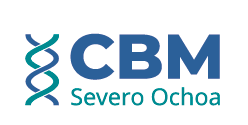Committee Chair

Jose Javier Lucas
Committee Vice-chair

Cesar Cobaleda
Contact information
ceea-cbmso@listas.csic.es
Many scientific and health advances have been made possible thanks to animal research. Until they can be dispensed with, the CBM is committed to promoting the 3Rs: Replacement or substitution by alternative methods, Reduction of their number to the minimum possible and Refinement, ensuring the best care for those that need to be used.
In September 2016 the CBM adhered to the Agreement on Transparency in Animal Experimentation promoted by the Confederation of Spanish Scientific Societies (COSCE), with the collaboration of the European Association for Animal Research (EARA) and the Spanish Society for Laboratory Animal Sciences (SECAL).
The CBM Ethics in Animal Research Committee is the official body in charge of the welfare of all the animals (OEBA) used in the centre’s research projects.
Vacio
Committee members
The members of this Committee are appointed by the management of the CBM and are composed of people with the necessary experience and expertise to ensure the welfare and care of the animals.
- Chair: José Javier Lucas
- Vice-chair: César Cobaleda
- Secretary: Blanca Estévez
- Members:
- Laura López
- Carmen Fernández (external advisor)
- Paula García Cicuendez
- Jose Ignacio Herrero Lahuerta
Functions
- Advise staff dealing with animals on animal welfare issues related to the acquisition, housing, care and use of animals.
- Advise staff on the implementation of the replacement, reduction and refinement requirement and keep them informed of technical and scientific developments in the implementation of this requirement.
- Establish and review internal operational processes with regard to the control, communication and monitoring of animal welfare related information.
- Advise on rehoming or adoption schemes, including appropriate socialisation of animals to be rehomed or adopted.
- Monitoring of projects taking into account their effect on the animals used as well as identifying and evaluating the elements that best contribute to replacement, reduction and refinement.
Resources
- Plan de Cultura del Cuidado en el CBM
- Documento Marco para la Evaluación de la Severidad EU
- Ejemplos de clasificación de la severidad
- Documento Marco para la Educación y formación EU
- Documento Marco para la Evaluación de proyectos y retrospectiva EU
- Directiva 2010-63-EU Protección de los animales utilizados para fines científicos
- Órganos y Comités Nacionales de Bienestar Animal UE
Legislation
- Directiva 2010-63-UE relativa a la protección de los animales utilizados para fines científicos
- Orden ECC 566 2015 por la que se establecen los requisitos de capacitación que debe cumplir el personal que maneje animales utilizados, criados o suministrados con fines de experimentación
- RD 53 de 2013 por el que se establecen las normas básicas aplicables para la protección de los animales utilizados en experimentación y otros fines científicos, incluyendo la docencia
- RD 1386 – 2018 Modifica el RD 53-201
